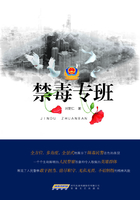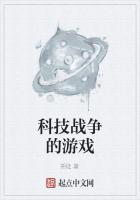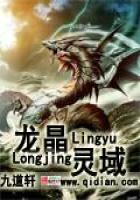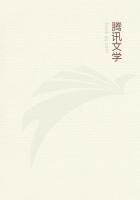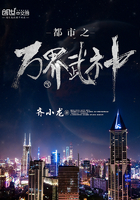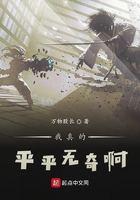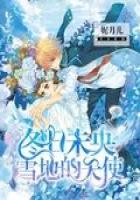人类的故事
The Human Story
温斯顿·丘吉尔 / Winston Churchill
History with its flickering lamp stumbles along the trail of the past, trying to reconstruct its scenes, to revive its echoes, and kindle with pale gleams the passion of former days.
As the great scroll of history unrolls, many complicated incidents occur which it is difficult to introduce effectively into the pattern of the likes and dislikes of the epoch in which we live.
The human story does not always unfold like a mathematical calculation on the principle that two and two make four. Sometimes in life they make five or minus three; and sometimes the blackboard topples down in the middle of the sum and leaves the class in disorder and the pedagogue with a black eye.
Science, which now offers us a golden age with one hand, offers at the same time with the other the doom of all that we have built up inch by inch since the Stone Age and the dawn of any human annals. My faith is in the high progressive destiny of man. I do not believe that we are to be flung back into abysmal darkness of fiercesome discoveries which human genius has made let us make sure that they are our servants, but not our masters.
Its place in the healing of the sick, and in giving more food and leisure for life. When it helps the strong crush the weak, and rob those who are asleep, it is using truth for impious ends. Those who are thus sacrilegious will suffer and be punished, for their own weapons will be turned against them.
在摇曳灯光的照耀下,历史在过去的小路上踽踽而行,试图重建过去的景象,恢复往日的回声,并想用微弱的光芒点燃往日的激情。
当历史巨大的卷轴展开之时,许多错综复杂的事件出现了,而这些事件很难有效地纳入我们这个时代人们的好恶模式之中。
人类的故事并不总是像数学运算一样根据二加二等于四的则展开。人的一生中,有时可能等于五或负三;有时,正算到一半,黑板倒塌,使全班陷于混乱,教师被砸得鼻青脸肿。
现在科学用一只手给我们奉献了一个黄金年代,但同时又用另一只手给我们制造了一个厄运,我们自从石器时代以及任何人类历史开始以来一点点建造起来的一切都将陷入困境。但我深信,人类的命运是非常积极向上的。我不相信我们将被扔进由自己才智发明所构成的黑暗深渊中。务必要确保我们主宰那些发明,而不要被那些发明所主宰。
发明的用处应该是治愈病人,为生活提供更多的食物和娱乐。如果它被用来帮助强者压迫弱者,掠夺熟睡的人们,它就是怀着不虔诚的动机去利用真理。以这种方式亵渎神灵的人们将遭到报应和惩罚,因为他们的武器将反过来对付他们自己。
人类的精神
The Spirit of Man
威廉·福克纳 / William Faulkner
威廉·福克纳(1897—1962),1949年诺贝尔文学奖得主。其文以人物心理的细微刻?及复杂迂回的形式结构见长。因其两度获普利策奖,而赢得“美国伟大小说家”的美誉。本文是他获得诺贝尔奖时发表的著名演说,文中勉励作家必须提升自己的心灵,时时以爱、怜悯与牺牲来唤醒人类亘古的真理。
I feel that this award was not made to me as a man, but to my work—a life' s work in the agony and sweat of the human spirit, not for glory and least of all for profit, but to create out of the materials of the human spirit something which did not exist before. So this award is only mine in trust. It will not be difficult to find a dedication for the money part of it commensurate with the purpose and significance of its origin. But I would like to do the same with the acclaim too, by using this moment as a pinnacle from which I might be listened to by the young men and women already dedicated to the same anguish and travail, among whom is already that one who will some day stand here where I am standing.
Our tragedy today is a general and universal physical fear so long sustained by now that we can even bear it. There are no longer problems of the spirit. There is only the question: When will I be blown up? Because of this, the young man or woman writing today has forgotten the problems of the human heart in conflict with itself which alone can make good writing because only that is worth writing about, worth the agony and the sweat.
He must learn them again. He must teach himself that the basest of all things is to be afraid; and, teaching himself that, forget it forever, leaving no room in his workshop for anything but the old verities and truths of the heart, the old universal truths lacking which any story is ephemeral and doomed—love and honor and pity and pride and compassion and sacrifice.
我觉得这个奖并不是给我个人的,而是给我的工作——包含人类精神苦痛和挣扎的终生工作,不为荣耀,也绝不为任何利益,而是为了创造出人类精神中的某些事物——一些前所未有的事物。所以这个奖只是暂时属于我。为这份奖金找一篇与它始目的及重要性相当的献词并不难。不过,我更愿意在欢呼声中做同样的致谢,把这个激动人心的时刻献给那些可能正在聆听我讲话的、同样献身于艰苦的文学事业的年轻男女们,这些人当中肯定有人将来会站在我现在站着的地方。
今天,我们的悲剧是一种全人类的肉体恐惧,它维持的时间之久——直到现在,以至于我们都可以忍受它了。那儿已不再有精神上的问题,只有这样的问题:什么时候我将被轰炸?因此,如今从事写作的青年男女,已忘却人类精神自相矛盾冲突的问题,而只有这个问题才能成就好的作品,因为只有它才值得写作,值得我们去历痛苦和挣扎。
人类必须再次学习它们。他必须使自己认识到,任何事物卑贱的底层都令人害怕。告诉自己,永远忘记它,在自己的工作室里不给任何东西留下位置,除了那些古老的真理和心灵的真实。如果这些古老、普遍的真理缺少了,任何故事都将瞬间消失——这些真理就是爱、荣耀、怜悯、自豪、同情和牺牲。
勇气
Courage
约翰·菲茨杰à德·肯尼迪 / John Fitzgerald Kennedy
约翰·菲茨杰à德·肯尼迪(1917—1963),美国第35任总统、政治家。生于波士顿名门望族,毕业于哈佛大学,是美国历史上迄今为止最年轻、口才最好的总统。1963年11月22日遇刺身亡。著有《美国为何酣睡》一书,曾风靡一时。
The courage of life is often a less dramatic spectacle than the courage of a final moment; but it is no less a magnificent mixture of triumph and tragedy. A man does what he must—in spite of personal consequences, in spite of obstacles and dangers and pressures—and that is the basis of all human morality.
To be courageous... requires no exceptional qualifications, no magic formula, no special combination of time, place and circumstance. It is an opportunity that sooner or later is presented to us all. Politics merely furnishes one arena which imposes special tests of courage. In whatever arena of life one may meet challenge of courage, whatever may be the sacrifices he faces if he follows his conscience—the loss of his friends, his fortune, his contentment, even the esteem of his fellow men—each man must decide for himself the course he will follow. The stories of past courage can define that ingredient—they can teach, they can offer hope, they can provide inspiration. But they cannot supply courage itself. For this each man must look into his own soul.
人生中的勇气,常不像紧要时刻的勇气那么富于戏剧性,但是这种勇气却同样是一个关于胜利和悲剧的壮观混合体。一个人去做他必须做的一切事情——不计个人得失,不考虑种种的障°、危险和压力——这就是人类一切道德的基石。






